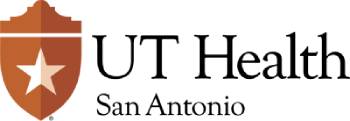
In performing blood pressure checks and other health screenings during their clinical training, nursing students occasionally come across patients who need follow-up care. Finding a 2-year-old who has out-of-control diabetes, however, was highly unusual.
Without intervention, “he could have gone blind, or lost his fingers or his feet,” said Gena Zarosky, who worked with a group of senior nursing students who discovered the severity of the Somalian toddler’s health condition last fall. Their teacher, Roseann Vivanco, M.S.N., RNC, put it more plainly: “His glucose level was 500 when it should have been less than 100. He could have died before he was 5 years old.”
The students were participating in a pilot service-learning project to assess health needs, offer screenings and provide follow-up referrals for 200 refugee families who live in an apartment complex about two miles from the UT Health Science Center.
“These are families who have been brought to San Antonio by Catholic Charities to find a better life,” Vivanco said. “Most of them were persecuted in their homelands and were living in refugee camps.” Many of them have unaddressed health issues because they are still learning English, are trying to find jobs and are not very familiar with the American culture.
Tapping into their diverse backgrounds, the students found ways to connect with the refugees. Zarosky and Andrea Johnson paired up with Ugochinyere Otuonye, originally from Nigeria, to teach the diabetic boy’s mother about proper nutrition, how to check his blood sugar level and the importance of giving him insulin on a regular basis. They gave her hope that the opportunities here include health care that can help her son live a much longer life than he would have in Africa.
The service-learning project is part of Vivanco’s community health class. She hopes to build on the progress made last fall to eventually provide a neighborhood health clinic for the refugees. “Obesity and related problems present a major health concern for the refugees,” Vivanco said. “We want to provide a multidisciplinary, comprehensive screening and education program for them in collaboration with our community partners and our colleagues in the Department of Family & Community Medicine. We are seeking funds for supplies for our work this spring.”
“This is a perfect example of the high caliber of education our nursing students receive while providing uncompensated care for the community,” explained Julie Novak, D.N.Sc., RN, CPNP, FAANP, the Thelma and Joe Crow Endowed Professor and associate dean for practice and engagement in the School of Nursing.
“Service learning is different from a one-time community service project,” said Dr. Novak, a new faculty member whose expertise is service learning. “Service learning exposes students to a variety of situations that challenge them intellectually, incorporate the learning objectives of their course and give them the opportunity for reflection and assimilation.”
Vivanco added, “Learning how to communicate with people who speak other languages and how to be respectful of their culture is great preparation for the students’ future careers. You have to gain the patient’s trust before you can address their health concerns. And after all, caring is the international language of nursing.”
